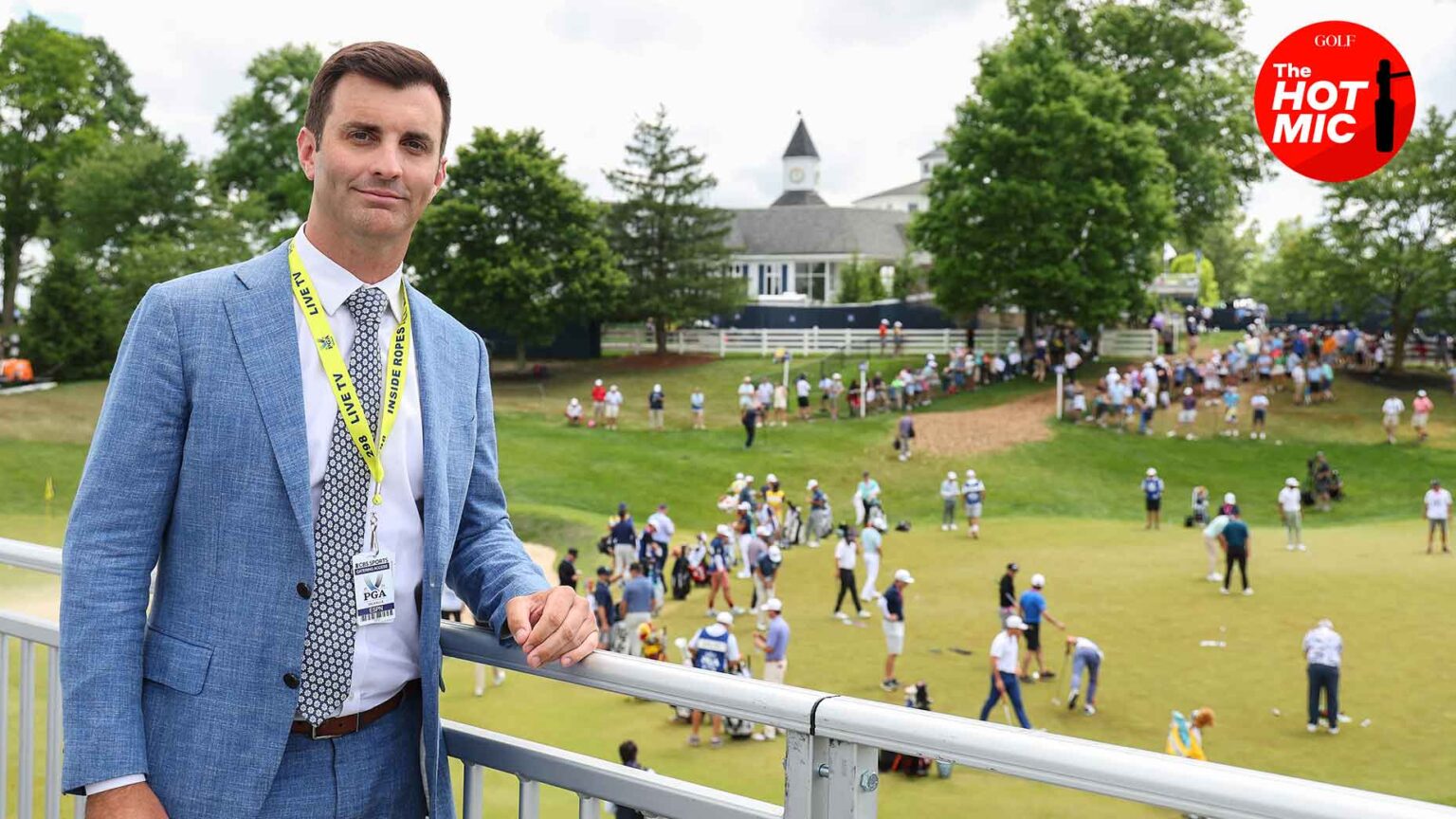The Shocking Arrest of Scottie Scheffler: A Deep Dive into the PGA Championship Incident
Introduction to a Dramatic Morning
On May 13, 2025, the world of golf was rocked by an incident that would change the way we view celebrity, law enforcement, and the role of eyewitnesses in shaping narratives. ESPN reporter Jeff Darlington found himself at the center of this storm during the PGA Championship held at Valhalla Golf Club. What began as an ordinary commute transformed into a story that would rip through headlines, encapsulating the complexities surrounding the arrest of world number one golfer Scottie Scheffler.
Early Morning Commute and Unforeseen Events
Darlington’s seemingly mundane drive from the Embassy Suites in Louisville turned extraordinary as he hit unexpected traffic while approaching the golf course. The situation escalated rapidly, shifting from the quiet anticipation of a day filled with golf to witnessing a shocking development involving Scheffler. Little did Darlington know that this moment would serve not only as a pivotal point for his career but also for the reputation of an athlete like Scheffler, who had long been known for his exemplary character on and off the course.
Jeff Darlington: An Accidental Eyewitness
As Scheffler attempted to navigate through what would end up being a critical traffic choke point, the ensuing scene unfolded with uncanny speed. An SUV, clearly marked for the tournament, found itself at the center of attention when a Louisville police officer began to take action. Darlington, who had transitioned from a background in print journalism to television broadcasting, immediately recognized the gravity of the moment. This was not just a story about golf; it was about the intersection of celebrity and societal structures.
The Arrest: A Flawed Encounter
The police response to Scheffler’s situation, while swift, appeared disproportionate to many observers, including Darlington. The officer, dressed in a yellow rain jacket, escalated to pulling Scheffler from his vehicle and placing him in handcuffs. This act raised a multitude of questions regarding law enforcement’s understanding of context—especially when facing a renowned athlete. Would this incident have transpired differently had Scheffler not been such a public figure?
Context is Key: Darlington’s Perspective
Darlington was one of the few people who had a comprehensive view of what happened, allowing him to grasp nuances that many others would miss. “I had every bit of context,” he stated, emphasizing the importance of understanding the situation’s intricacies. As he approached the scene with his camera rolling, he transitioned from a bystander to a crucial journalist, capturing a representation of truth that would influence media narratives for days.
Media Ethics and the Power of Reporting
Suspense filled the air, and Darlington acutely felt the weight of his responsibility as a reporter. He didn’t want to sensationalize what was unfolding; rather, he aimed to provide clarity. Journalism often grapples with ethical dilemmas, and this situation was no exception. Was he exploiting a serious moment in Scheffler’s life, or was he fulfilling his duty to report the truth? His decision to film the encounter wasn’t made in reckless haste—it was a thoughtful evaluation of journalism’s role in society.
Aftermath: Repercussions for All Involved
In the days following the incident, Darlington reached out to Scheffler to ensure that his coverage didn’t affect their professional relationship negatively. Scheffler expressed gratitude that someone had witnessed what happened but was also anxious that it might have been portrayed in an unflattering light. “I’m glad that somebody saw what happened,” he articulated, underlining how crucial on-the-scene reporting can be in shaping public perception.
The Impact of Public Perception
Had Darlington not captured the essence of the moment, the narrative could have skewed dramatically. Mistakes made by law enforcement were visible, but equally, the public’s understanding of the incident hinged on the accurate portrayal by reporters like Darlington. “If not for my coverage, the truth might have never come to light,” he reflected, underscoring the role that an informed media plays in modern society.
Navigating the Waters of Celebrity
This incident with Scheffler raises larger questions about the responsibility of both athletes and the media in a publicity-driven culture. Darlington summarized it well: “I don’t care if it’s Scottie Scheffler or anybody; they all deserve a chance to clarify misunderstandings.” The incident serves as a reminder that narratives crafted in the moment can have lasting implications, not only for public figures but also for the society that consumes these stories.
Conclusion: The Story Turns
Darlington was proactive in ensuring that he approached this evolving narrative with care. This episode serves to highlight the fragility of reputation and the power of media in influencing public opinion. The world of sports journalism may often be viewed through the lens of fun, but it carries profound responsibility. As for Scottie Scheffler, the incident may prove to be a turning point, shaking the foundations of public trust, celebrity culture, and media ethics. In the unfolding landscape of sports, understanding context remains paramount.
By prioritizing long-form journalism and thoughtful storytelling, Jeff Darlington and others in his position not only bring stories to light but also teach everyone involved important lessons about truth, repercussions, and the layers beneath the surface of sports narratives.


